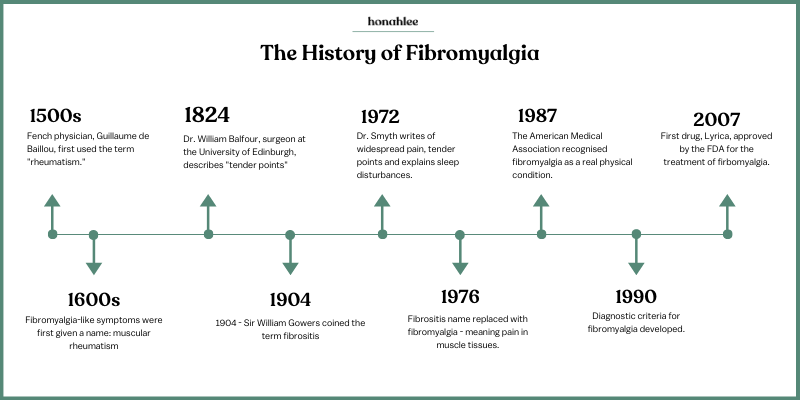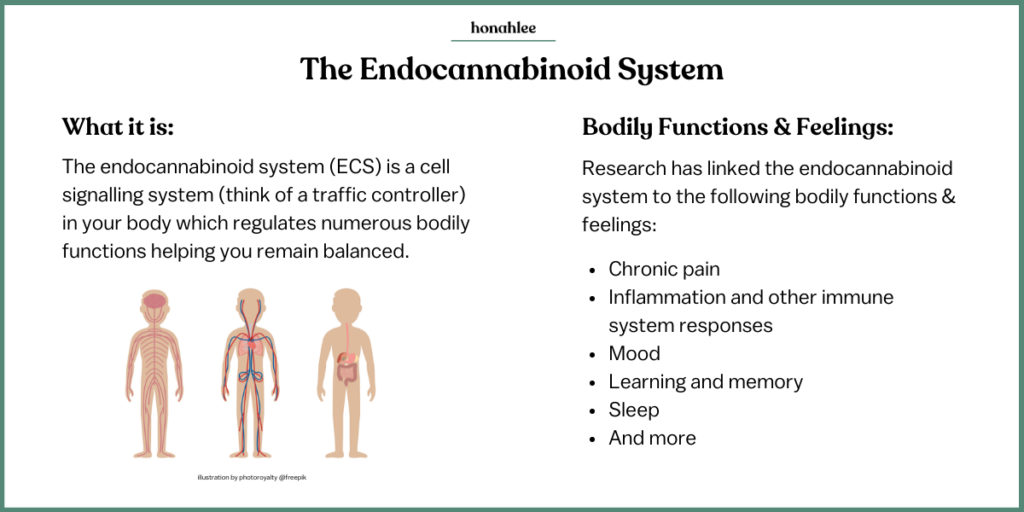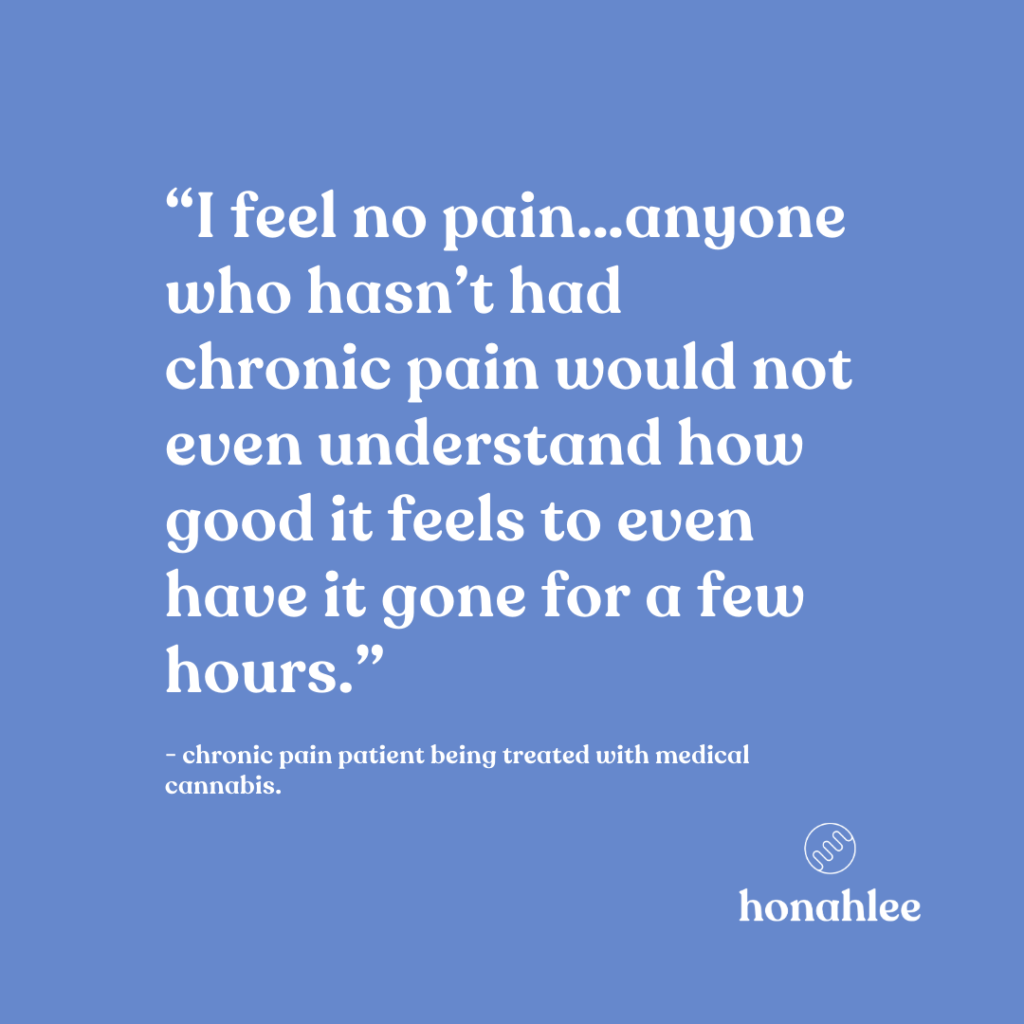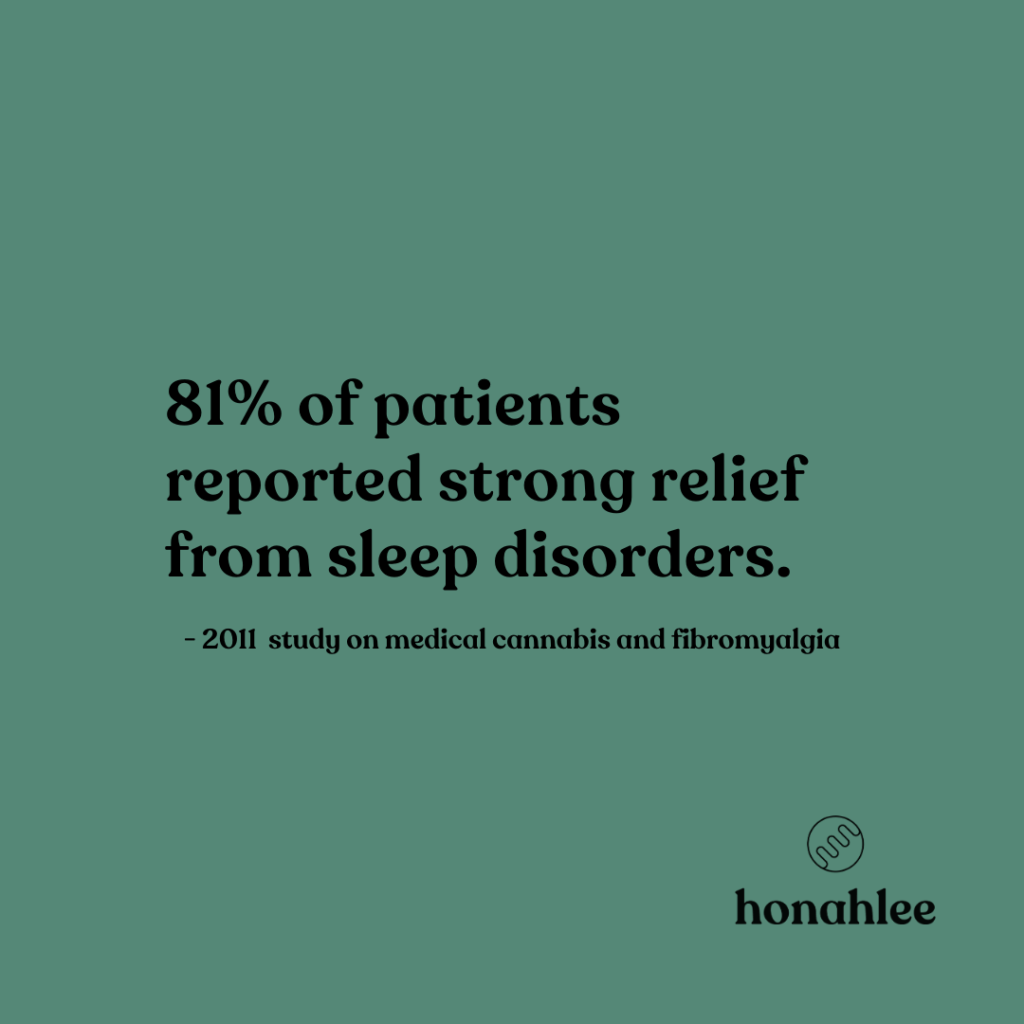Cannabis and CBD for fibromyalgia
In many ways, the disorder fibromyalgia and the plant, cannabis sativa are similar. Like fibromyalgia, cannabis has been around for centuries. In the same way that the medical benefits of cannabis are being researched and our understanding is evolving, we still have much to learn about fibromyalgia and treatments.
While many people are sceptical of medicinal cannabis, there are still those who question the legitimacy of fibromyalgia as a disorder. It would seem that fibromyalgia and cannabis are a disorder and medicine cut from the same cloth.
In this article, you’ll learn about fibromyalgia, treatments for fibromyalgia and how medical cannabis is (and isn’t) helping patients with this condition.

If you’d like to skip ahead in this article here are a list of the major sections:
- A brief and important history of fibromyalgia.
- Fibromyalgia, the endocannabinoid system and cannabinoid deficiency.
- What are the signs and symptoms of fibromyalgia? | 00:14
- When should an individual seek a doctor’s help for fibromyalgia? | 01:22
- How is fibromyalgia diagnosed? | 02:05
- Can cannabis treat fibromyalgia? | 03:16
- Cannabis for the treatment of specific fibromyalgia symptoms
- What are the side effects of cannabis and fibromyalgia? | 07:01
- What type of cannabis is prescribed for fibromyalgia? | 08:15
- What are the typical dosages of cannabis for fibromyalgia? | 09:29
- What are the traditional treatments for fibromyalgia? | 10:19
- What are the side effects of traditional treatments for fibromyalgia? | 11:22
- What does the research say about cannabis and fibromyalgia? | 13:15
Before you begin, it is important to note that THC and CBD will not cure your fibromyalgia.
A brief and important history of fibromyalgia

Fibromyalgia is a disease that’s been affecting individuals for centuries. Our understanding of the disease has transformed over time and is still evolving.
As evident through its history, fibromyalgia and treatments for this disorder have been evolving since first discovered. While science and medicine continue to improve drastically, in many ways, fibromyalgia still remains a mystery.
Medically, “fibro” means connective tissue and “itis” means inflammation. fibromyalgia: “fibro” meaning connective tissues, “my” meaning muscle, and “algia” meaning pain
Fibromyalgia and the endocannabinoid system

The endocannabinoid system (ECS) is a cell signalling system (think of it like a traffic controller) in your body regulating numerous bodily functions helping you remain balanced. Today, research has linked the ECS to a variety of bodily functions and emotions.
The ECS is made up of endocannabinoids – molecules that send messages; and cannabinoid receptors – the receiver of the messages. One of these types of receptors, the CB1 receptors, are found in your central nervous system. The central nervous system is responsible for regulating pain.
Fibromyalgia and Clinical Endocannabinoid Deficiency (CED)

CED is a theory that proposes that lower endocannabinoid levels in one’s body can lead to conditions like IBS, fibromyalgia and other treatment-resistant disorders.
In 1998 research showed that endocannabinoids could reduce hyperalgesia (an increased sensitivity to pain). This finding has led researchers to believe that cannabis, or specific cannabinoids in cannabis, can help treat certain symptoms of fibromyalgia. What has been proven time and again, is that cannabinoid therapy can help the endocannabinoid system operate more smoothly. CBD helps to stimulate the release of endocannabinoids and the binding of other molecules within your system.
Hopefully, you now see the link between cannabis and fibromyalgia from a scientific and treatment perspective. It’s important to remember that research on cannabis and CED is relatively new and far more research, particularly longitudinal studies, need to be completed.
What are the signs and symptoms of fibromyalgia?
Fibromyalgia is a disorder which doctors believe inhibits the way that your brain and spinal cord process pain signals from nerves. Because of this, it’s believed that an individual’s pain receptors develop a “memory” of the pain and become more sensitive to that pain in the future.
Fibromyalgia (fibro) is more common in women than men and those who have fibro often have other diagnoses such as Irritable Bowel Syndrome (IBS), anxiety and depression.
The pain that results from fibromyalgia can be different for each individual. Individuals with fibromyalgia often experience pain that is widespread throughout the body and can dissipate or persist for long periods of time.
Common symptoms of fibromyalgia are:
- Widespread pain
- Extreme fatigue (exhaustion)
- Poor sleep
- Problems with concentration and memory (aka fibro fog)
- Irritable bowel syndrome – IBS
- Anxiety and depression
How is fibromyalgia diagnosed?
Fibromyalgia is quite a difficult condition to diagnose because of the complexities of how it presents in individuals. Doctors use a process of elimination approach and multiple surveys to tests to come to a diagnosis of fibro.
You may go through ultrasounds, MRIs, x-rays and blood tests to check for underlying factors and to rule out other medical conditions. Quite often doctors will aim to rule out rheumatic diseases, mental health problems and neurological disorders.
If other things can be ruled out, doctors may use pain and anxiety surveys and a fibromyalgia impact questionnaire to assess your condition.
Can cannabis treat fibromyalgia?

n many cases, yes. When treating fibromyalgia a doctor doesn’t directly treat fibro, they treat the symptoms of fibro, including: pain, sleep disruption and anxiety and depression.
A fibro-cannabis study from 2018 showed that all of the participants found improvement in symptoms from cannabis use and more than half ceased taking other medications. More broadly, research shows that cannabis can benefit patients who experience chronic pain, insomnia, anxiety and depression.
Can CBD or CBD oil treat fibromyalgia?
Yes, CBD oil can be used in the treatment of fibromyalgia. There are many studies showing CBD’s benefits on fibro symptoms. With regard to fibromyalgia symptoms, CBD is known to have properties such as:
- Mild pain relief
- Muscle relaxant
- Anti-inflammatory
- Anxiety reduction
- Helps insomnia
- Non-psychoactive
Can THC help treat Fibromyalgia?
Yes, THC is also often used effectively in the treatment of fibromyalgia. THC is often used in cannabinoid-based pain treatment. With regard to fibromyalgia symptoms, THC is known to have properties such as:
- Pain relief / lower muscle tension
- Mild anti-inflammatory
- Sleep improvement
Cannabis for the treatment of specific fibromyalgia symptoms
Can cannabis help with Fibromyalgia pain?
When researching cannabis to treat fibromyalgia, pain is the top symptom fibro suffers want relief from. Chronic pain is one of the most approved conditions for which medical cannabis is approved for in Australia. There have been quite a few studies on chronic pain in adults and cannabis but again, very few that relate specifically to fibro.
Fibro and cannabis specific studies:
In 2011, a study of 28 fibromyalgia sufferers concluded that approximately 86% of patients reported mild to strong relief of pain from the use of medical cannabis. The remaining patients reported no change in pain.
With regard to the chronic pain patients we’re treating, about 7% have fibromyalgia. And, they’re finding cannabis to be very beneficial. It’s helping improve their quality of life.
Another study done in 2019 focused on pain scores of fibro sufferers. The results showed that the median pain scores went from 9/10 to 5/10.
It’s also important to note that there are many other non-fibro specific studies that have implications for the treatment of fibromyalgia pain. In 2017, The National Academies Press (NAP), published a review of numerous cannabis studies. With regard to chronic pain, the NAP concluded there is “substantial evidence that cannabis is an effective treatment for chronic pain in adults.”
While these studies show that cannabis has a lot of promise in treating fibromyalgia and its related symptoms, there are limited controlled studies and therefore is no conclusive answer as to whether cannabis can treat fibromyalgia pain.
If you are having issues with chronic pain as a result of fibromyalgia, talk to your doctor or a medical cannabis clinic about whether cannabis might be the right medication to help with your pain.
Can cannabis help with sleep deprivation in fibromyalgia?

Sleep is one of the best ways to reduce many of the fibro symptoms however due to pain, patients often have trouble sleeping.
There are two cannabis focussed medical studies that have been noteworthy in fibromyalgia symptom reduction thus allowing for better sleep.
In 2011 a study on medical cannabis and fibromyalgia was published. Participants used cannabis for a range of symptoms and consumed their medication by smoking and/or eating it. The results found that 81% of patients reported strong relief from sleep disorders.
A 2010 study from Canada which used a synthetic THC, showed that over short periods of time cannabis could improve sleep in fibromyalgia patients. In this study, no improvements on pain, mood or quality of life were observed.
In a 2007 study on patients with chronic pain, researchers were able to show that a 1:1 ratio of CBD to THC medication gave 40-50% of subjects good or very good sleep quality.
The impact of cannabis on sleep problems relating to fibromyalgia warrants further research. While many people claim cannabis is helping with their sleep symptoms, the evidence is not conclusive.
What about patient well-being and cannabis?

One factor that we haven’t discussed is overall patient well-being. For many individuals who suffer from fibromyalgia, their quality of life is diminished by the symptoms of the disorder. With any medication, a doctor not only looks at the medical outcomes, but also the perceived well-being the patient has from taking a medication.
In both the cannabis survey from 2017, and the 2011 fibromyalgia and cannabis study a majority of patients perceived a greater overall well being after cannabis treatment. Patients from the survey made some of the following comments:
- “It lets me live a more productive life and a more fulfilling one”
- “It gives me the ability to function throughout the day”
- “I am more active and able to do things I want”
- “Distracts me from the pain and dwelling on negative thoughts”
- “I can think more clearly”
While a sense of well-being is not treatment in itself, a positive sense of well being should be a goal for any fibromyalgia treatment plan.
What are the side effects of cannabis and Fibromyalgia?
When looking at cannabis side effects you need to assess CBD and THC independently.
With CBD, while rare, some patients experience dry mouth, dizziness, headaches or an upset stomach. These side effects often ease up over the first couple of weeks.
With THC, patients may also experience dry mouth and a bit of dizziness. At too high doses however, THC can also cause an increase in anxiety, hypervigilance (restlessness) and make it harder to get to sleep.
It’s also important to note that driving with any THC in your body is illegal in Australia. If you’d like to learn more about the duration of cannabis in your body, you can read out cannabis in your system article.
What type of cannabis is prescribed for Fibromyalgia
Both CBD and THC can come in different formulations and from different strains of the cannabis plant. Certain chemical properties of these strains mean they may have an uplifting or sedating effect. Because fibro patients can have a range of symptoms, different types of cannabis may be more beneficial for some patients than others.
Typically doctors start with a CBD only or CBD dominant oil which is taken orally. CBD can help improve many of the symptoms of fibromyalgia. Depending on your history with cannabis and whether CBD only medication is helping, your doctor may add some THC.
Initially, both your CBD and THC are likely to come in oil form. Oil has a slower onset but has a longer duration of action which means it can keep pain and other symptoms at bay for longer periods with less cannabis.
If you experience breakthrough, or rapid onset pain, your doctor may prescribe cannabis flower which would be inhaled via a vaporiser. Inhaled flower has a much faster onset but shorter duration.
What are the typical doses of cannabis for fibromyalgia?
Unlike other medications prescribed by a doctor, there are formulas for how many mg a person should take. The interesting thing is that treating fibromyalgia with cannabis is similar to treating other conditions with cannabis. The main difference is the individual’s response to the cannabinoids.
Doctors will always start low and go slow (increasing slowly). You will work with your doctor by telling them how you feel on your dose throughout the initial period. Your goal is to find the minimal effective dose that provides the maximum effect with limited side effects. This process is often referred to as identifying your therapeutic window.
Now that we’ve explained cannabis let’s compare cannabinoid treatment to more traditional treatments.
What are the traditional treatments for fibromyalgia?
There are two main categories for fibromyalgia treatment:
- Medical (pharmacological)
- Natural (non-pharmacological)
Medical
Because fibro presents in different ways for people it’s difficult to cover all of the treatments. For pain relief, typical treatments are:
- Nonsteroidal anti-inflammatories
- Anticonvulsants
- Pain medications (opioids) and
- Antidepressants
Doctors will use a wide variety of medications to help treat fibro symptoms.
Natural
Natural therapies often focus on both the body and the mind. Meditation, hypnotherapy, cognitive behavioural therapy and other relaxation techniques may be recommended. These can often help patients manage the mental stress and anxiety of their pain better.
Physical therapies can include physiotherapy, massage, acupuncture and massage. These treatments however often don’t work for patients due to the extreme nature of their symptoms.
What are the side effects of traditional treatments?
In the case of fibromyalgia, there are potential side effects (or deterrents) for both natural and pharmacological therapies.
With relation to the pharmacological therapies many of the prescribed pain killers, including opioids, can cause constipation, nausea, sleepiness, and drowsiness. With opioids in particular, there is a risk of dependence.
Antidepressants and some of the nerve pain medications can increase anxiety in some and cause insomnia.
With regard to natural therapies, the biggest side effect is an increase in pain. Some fibro patients can’t even be touched or experience extreme delayed onset pain after physical therapy. So, rather than a side effect, it’s more of a deterrent.
What does the research say about cannabis and fibromyalgia?
There is limited research that looks at cannabis and fibromyalgia specifically. The studies that do relate to cannabis and fibro (which can be found above) show that cannabis is helping to reduce some symptoms of fibromyalgia in many individuals.
While marijuana is not clinically proven to treat all symptoms of fibromyalgia, it appears that cannabis may help fibro patients sleep better and find some relief from chronic pain. That being said, medical cannabis doesn’t work for everyone. Cannabis is not a first-line treatment and you should consult your GP or another medical specialist if you think cannabis is right for you.



